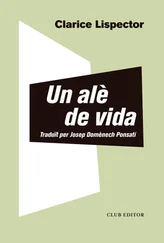Upon reflection, I cannot recall ever having seen a child in that room. Only people who were mature enough to drop from the tree and be squashed in all that brightness. No, there was not a child in sight. What I did see was a fat man who could not squeeze into those narrow chairs. Spurned and crestfallen, he became our great beetle in the light. I also saw a frail, abandoned woman enter. Her blue eyes were bulging and she clearly had thyroid trouble. As she entered, those bulging eyes momentarily distorted my vision: the room was that woman, that woman was the room. They merged like waters from the same waterfall. How could she close those enormous blue eyes when it was time to sleep? And what about the room? Where could it store all that light when it went to sleep? If only we could switch that room off for a second — what would happen? What great darkness made up of dead shadows would descend?
But the room had no place to store its light. Because I forgot to mention that the room was quite bare, despite the objects, furniture and people. There was no place to conceal oneself in that room. Everything was exposed.
One thing in particular happened to us. Richness was no longer behind us nor did we expect it any more for we were not adolescents: today had become such a perfect word that another second would have destroyed it. Today would only have to leave the room in order to disintegrate. That room was neither yesterday nor tomorrow. And whenever we uttered the word today , it was as if a secret had been unmasked.
Wounded by the intense light of that bloated room, strange quarrels broke out amongst those present. Muted, short-lived quarrels about trivial things: flashes of lightning on a summer’s day. For example, paper could not be found to wrap a gift for the landlady. What did a sheet of paper cost? Yet harsh words were exchanged. On another occasion, we spotted a grape-pip shining like a diamond on the floor. Joking among ourselves, we went down on our hands and knees and jostled each other in an attempt to claim the pip on the pretext that it would make a handsome tie-pin or brooch. At first we fought in jest, but friction soon broke out, tiny sparks were flying and there were angry explosions on all sides. Until I finally claimed the pip on the grounds that I had seen it first, only to be met by stony silence from the others. Needless to say, I threw it away the moment I left the room because the pip had been lying there for ages and was covered in grime. Only the odd trace of moisture had allowed it to glisten under the light.
What a cheerful room that was. We did everything possible to be invited there. We would arrive panting like a dog which had run for miles and come to die at its master’s feet. Panting, our mouths became dry with all this happiness. Wide-eyed, curious and exhausted. But with no cause for complaint. The room had never made any reassurances or promised any rewards. It was simply life.
PEN DRAWING OF A LITTLE BOY
How can one ever come to know a little boy?
In order to know him, I must wait for him to drop his guard, and only then will he be within my grasp. There he is, a point in infinity. No one will know his today. Not even the little boy himself. As for me, I look, and it is useless: I cannot understand anything which is simply existent, totally existent. But I do know what it means to be a child. He is the little boy whose first teeth have just started to appear, and the same little boy who one day will become a doctor or a joiner. In the meantime — there he is, sitting on the floor, and I prefer to call his reality vegetative in order to be able to understand. There are thirty thousand such little boys sitting on the floor. Will they have the chance to build another world, one that will take into account that absolute reality to which we once belonged? In union there will be strength. There he sits, initiating everything anew, but for his own future projection, and without any real opportunity of initiating anything.
I do not know how to sketch the little boy. I know that it is impossible to sketch him in charcoal, for even pen and ink stains the paper beyond that subtle line of extreme actuality within which he lives. One day we shall domesticate him into a human being and then we shall be able to sketch him. For this is what we have done with ourselves and with God. The little boy will assist in his own domestication; he is keen and co-operative. He co-operates without knowing that the assistance we expect of him is for his own self-sacrifice. Recently, he has had a lot of practice. And so he will go on progressing until little by little — because of the essential good nature with which we achieve our salvation — he will pass from present time to continuous time, from meditation to expression, from existence to life. Making the great sacrifice of not being mad. I am not mad out of solidarity with the thousands of people who, in order to construct the possible, have also sacrificed the truth which would be madness.
But meanwhile, there he sits on the floor, immersed in a deep void.
From the kitchen his mother calls out anxiously: What are you up to through there? Once called, the little boy gets up with difficulty. He totters, unsteady on his feet, all his attention concentrated within, his balance wholly internal. Once that has been achieved, all his attention turns outwards: he observes what the effort of getting to his feet has provoked. For getting up has had one effect after another: the floor moves unsteadily, the chair towers over him, the wall confines him. And on the wall there is a portrait of THE LITTLE BOY. It is difficult to look up at the portrait without leaning against a piece of furniture, and that is something he has still to learn. But his own awkwardness gives him support: what keeps him on his feet is precisely focusing his attention on the portrait above; looking up serves as a hoist. But he makes one mistake: he blinks. Blinking detaches him for a fraction of a second from the portrait which was supporting him. He loses his balance — and all at once, he falls on his bottom. His mouth gaping from all that human effort, the clear spittle trickling on to the floor. He examines the spittle at close quarters, as if it were an insect. He raises his arm and brings it forward in slow mechanical stages. Then suddenly, as if he were capturing something ineffable, with unexpected violence he squashes the spittle with the palm of his hand. He blinks and waits. Finally, having allowed sufficient time to pass, he carefully removes his hand and looks down at the floor, examining the fruit of this action. The floor is empty. With another brusque movement, he examines the palm of his hand: the spittle is stuck there. He has learned something new. Then, with his eyes wide open, he licks the spittle which belongs to the little boy. He thinks aloud: little boy.
— Who are you calling? his mother enquires from the kitchen.
With effortless charm he looks round the room and looks for the person his mother says he is calling; he turns his head and falls backwards. As he sobs, the room becomes distorted and refracted by his tears, the white volume grows until he cries out — Mummy! — he is gathered into strong arms, and suddenly the little boy finds himself in mid-air, cradled in an embrace which is warm and consoling. The ceiling is much closer now: the table down below. Overcome with exhaustion, the pupils of his eyes roll before sinking beneath the horizontal line of his eyes. He closes them over the final image, the wooden bars of his cot. The little boy falls asleep, worn out and peaceful.
The saliva has dried in his mouth. A fly beats against the window-pane. The little boy’s sleep is streaked with light and warmth, his sleep vibrates in the atmosphere. Until in a sudden nightmare, one of the words he has learned comes to mind; he shivers violently, opens his eyes. And to his horror, he sees nothing but the warm, clear emptiness of air — and no mother. His thoughts explode into sobs which fill the entire house. As he sobs, he starts to recognize himself, transforming himself into that child whom his mother will recognize. He grows almost weak from so much sobbing: he must transform himself immediately into something which can be seen and heard, otherwise he will remain alone, he must transform himself into something comprehensible, otherwise no one will understand him, no one will respond to his silence, no one will know him if he does not speak for himself. I shall do everything necessary so that I might belong to the others and the others belong to me; I shall skip over my real happiness which will only bring neglect; and I shall be good, anything for the sake of being loved. For what could be more magical than to weep in exchange for a mother?
Читать дальше












